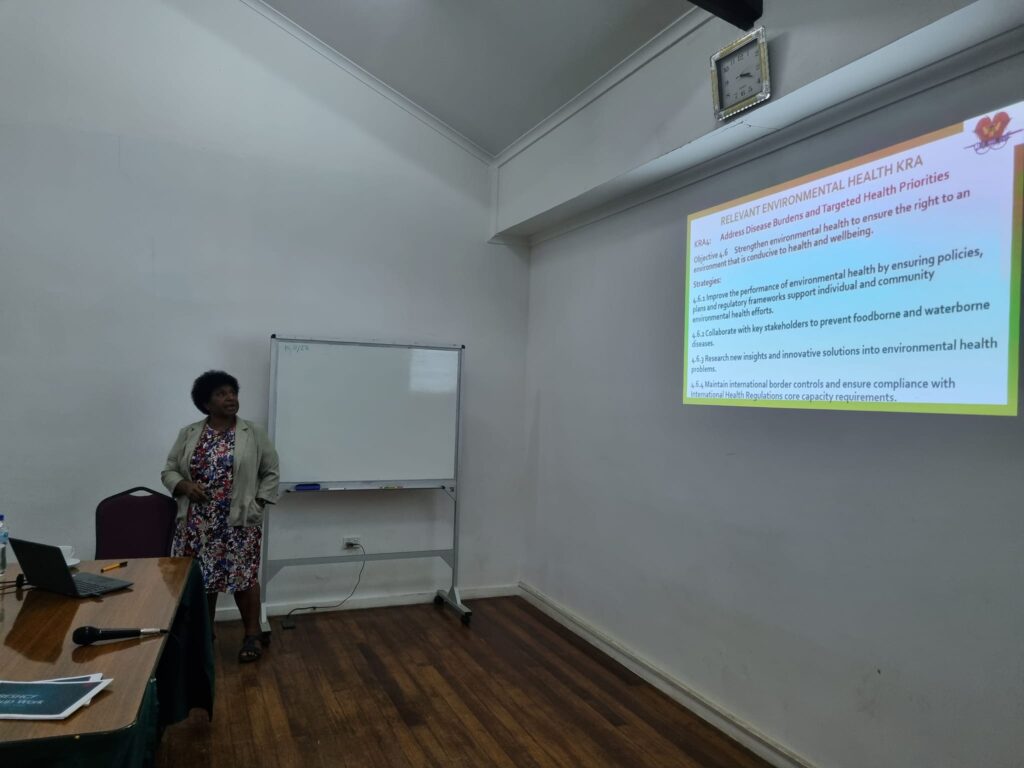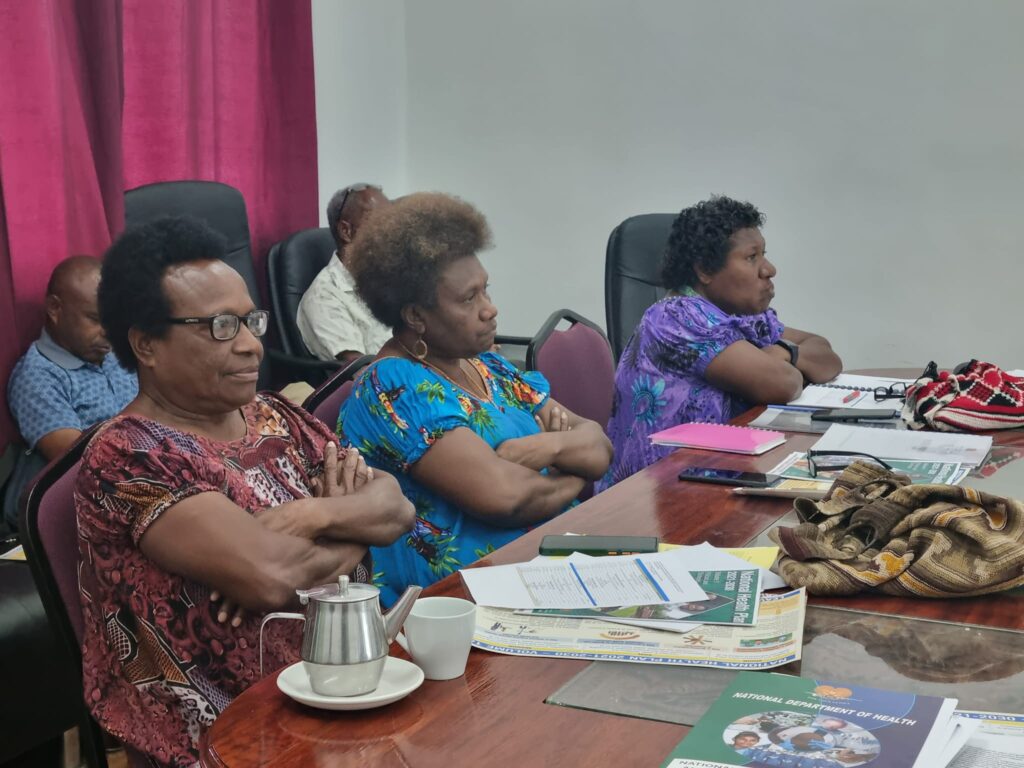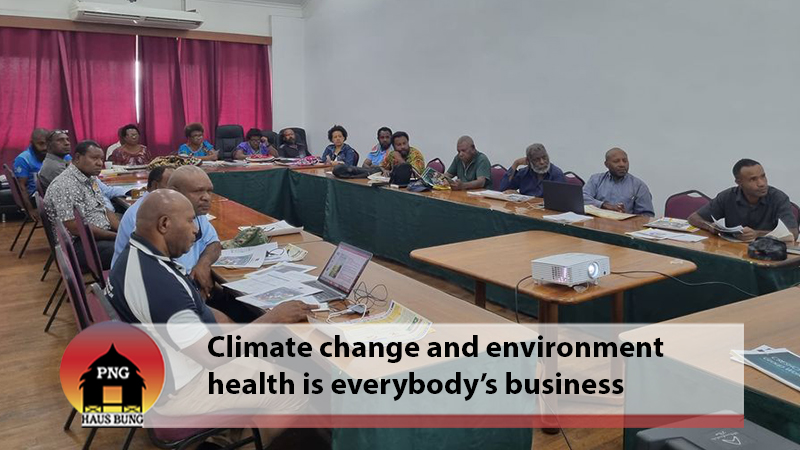The National Department of Health with technical support of WHO Papua New Guinea is currently conducting consultation of its draft strategy and guidelines on addressing health impacts of climate change in Papua New Guinea.
The workshop has brought Environmental Health Officers from the MOMASE Region to Madang this week, to discuss two important documents for the country:

1. The Draft National Climate Change and Health Strategy and Action Plan (SAP) and
2. Draft Climate Resilient and Environmentally Sustainable Health Care Facility (CRESHCF) Guidelines.
This is the third consultation on SAP and second consultation on CRESHCF following provincial consultation in East New Britain, September 2022.
As part of this process, we are hoping that health sector take climate actions or vice versa, and that environmental health officers become climate change and health champions by ensuring that their provincial environmental health plans are climate change inclusive.

The NDOH Environmental Health Branch is also advocating among respective provincial health authority to align with National Health Plan (NHP) 2020-2030, particularly on implementation of Environmental Health related key result areas.
The overarching goal of NHP 2020-2030 is to ‘prevent ill health, identifying and addressing health risks and emerging diseases and providing accessible and affordable quality healthcare for all”.
This calls for prevention of illness and diseases. A cost-effective intervention is investing in addressing environmental health related risks that affect basic health of a population such as access to clean and safe drinking water and safe food, etc.
Environmental health as a core branch of Public Health focuses its efforts on assuring safe, clean and healthy environment for better health outcomes.
Climate change and environment health is everybody’s business.
Source: National Department of Health

